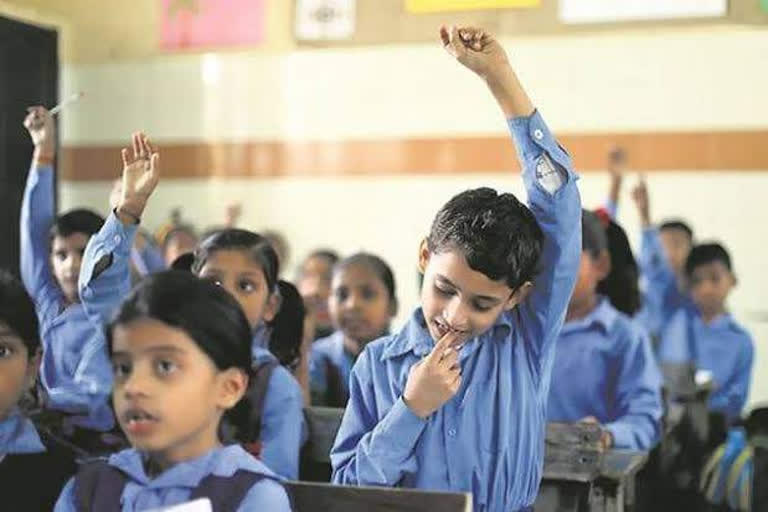Hyderabad: Due to the effect of the Corona pandemonium, the world has been under lockdown for the past six months. The restrictions are being lifted slowly in a phased manner. In some countries, schools are open….other countries are preparing to open. Parents are in a dilemma as to how to send their children if schools reopen? What precautions to take? Under these conditions, what are the chances of children getting infected with Coronavirus and will they recover easily? To what extent will they spread the virus? What do scientists say about this? Are there any studies on this topic?... etc., are the questions on their minds.
British researchers say that in countries like China, Italy, America, where the COVID-19 effect is high, less than 2% of children under the age of 18 were infected.
However, some researchers recall that children have not been infected more than adults, because schools have been closed so far and they are at home. Hong Kong researchers say, since they were asymptomatic, extensive tests were not conducted on them. Schools must reopen only after ensuring all preventive measures in order to prevent social outbreak through them.
According to an article published in Lancet Journal, a March research in Shenzhen (China) revealed that children under the age of 10, who got infected by the epidemic along with adults, are showing minor symptoms. In South
Korea, Italy and Iceland, where tests are being carried out extensively, virus infection to children is not high.
Low carriers of the virus!
A study revealed that though a COVID-19 positive boy (9) visited three schools in the Alps region of France, no one got infected with the virus. Australia' s virologists have conducted a study on outbreak of virus in children in the schools of Singapore working since the beginning. They revealed that compared to other members in the family, children spread the virus at a slow rate of 8%.
The difference in immunity level
- Various researches have shown that children are facing COVID-19 more efficiently than adults. They say that the A-2 enzyme that attracts the Corona virus is less present in children's lungs. That is why virus infected children do not show any symptoms or sometimes present with minimum symptoms. Only some are seriously ill and very few of them are dying.
- Another argument is that children under the age of 15 are often infected with viruses such as colds, coughs, and asthma, and the antibodies produced then are now fighting with SARS-CoV-2 (Severe acute respiratory syndrome coronavirus.
- The level of production of cytokines on infection with the virus is low in young children. For this reason, their other internal organs pose no danger. Researchers from different countries have concluded that deaths are associated with increased risk of cytokine stroke in adults. Overall, adequate care must be taken before sending children to school, their seating arrangement in the class, and to constantly disinfect school vans.
The ongoing damage...
“Over 157 crore students in 190 countries have missed school due to lockdowns. Mid-day meal is not available in the schools; with the result, their health is affected. Over 12 crore children are not vaccinated in some 37 countries. The World Health Organization recently announced: 'We are unable to vaccinate 40% of children in India at the right time.'
The better way is ...
- Opening schools does not mean students sitting in groups as in the past. Completely new techniques have to be brought in.
- Classroom benches/chairs should be moved apart to ensure physical distance.
- It may be advisable to divide the class into two groups to solve the space problem and teach 4 days a week to each group.
- Half of the classes should be arranged online. While this may be possible for private schools, government schools may have trouble initially.
- Masks and hand hygiene should be mandatory for all children.
- School surroundings must be regularly disinfected. Sanitizers should be made available to children.
- Playgrounds should be closed for some more time.
What is happening in other countries?
- In France, conditions are that each class should have 15 students and everyone should wear a mask.
- In Denmark and Germany, mask is made mandatory for each student. In each class, chairs are arranged with at least six feet distance between each seat.
- In Taiwan, physical distance is created by placing cardboards between students. Schools in Sweden are not closed. They are ensuring cleaning of hands, wearing masks, and practising physical distance.
- In China, school bags of all the students are sanitized and wearing masks is made mandatory.
- Schools in Britain were started with 2% of children.
- Schools have been opened with due care for the second term in Australia. It is up to the parents to decide whether to send the children.
Also read: Foreign doctors fighting COVID-19 at Delhi AIIMS want salaries



